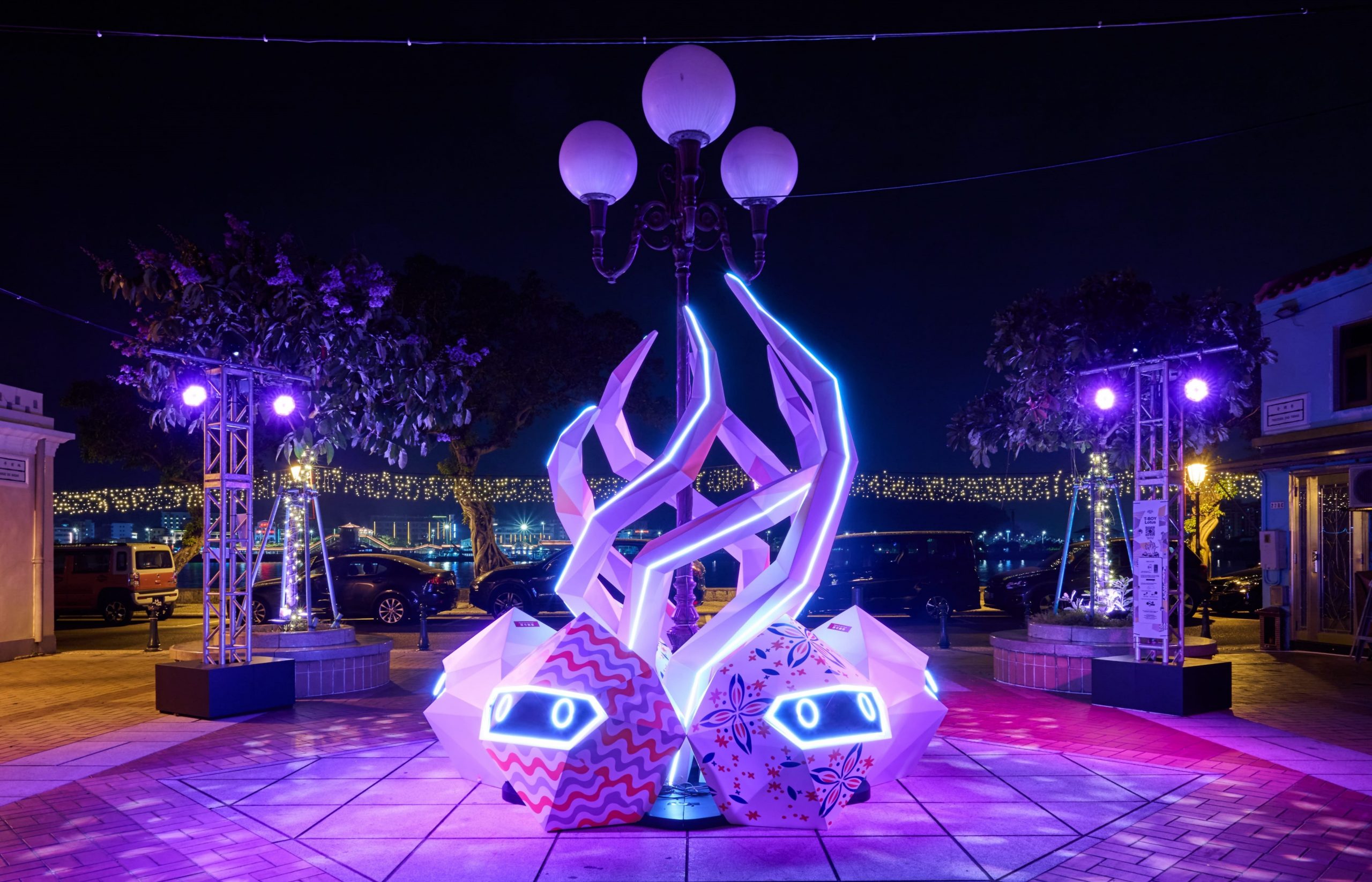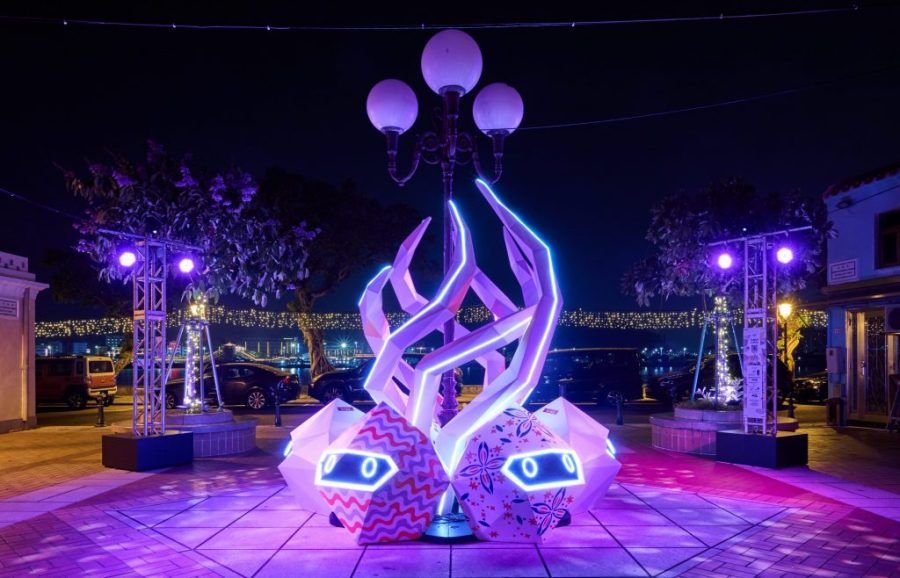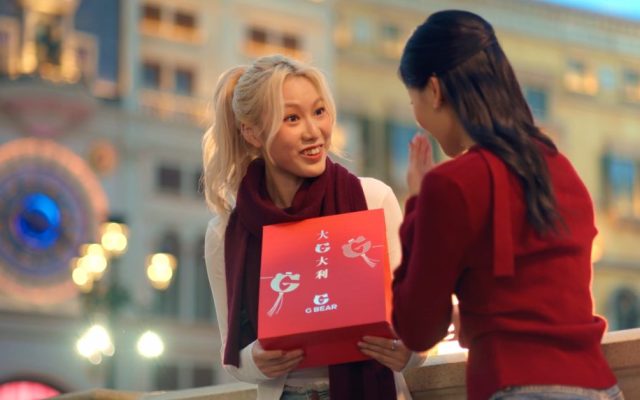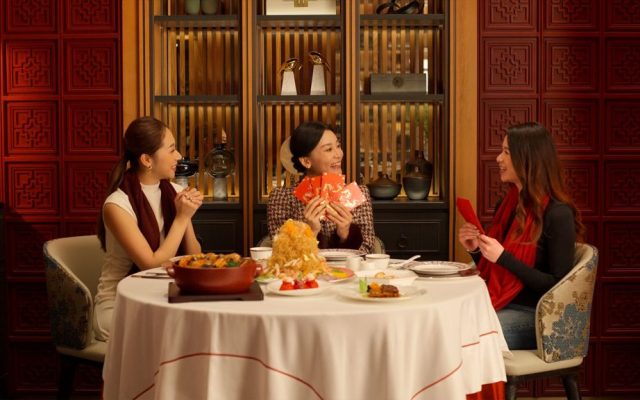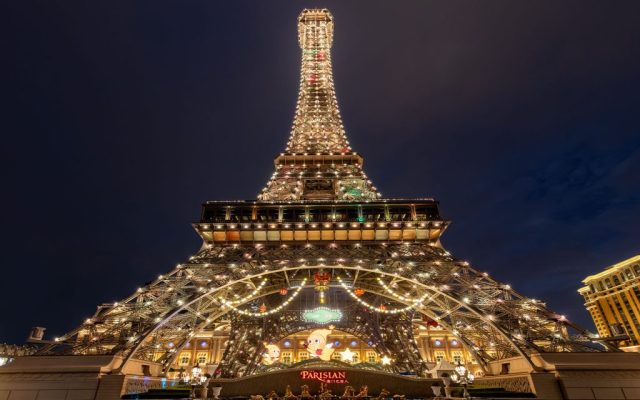As the sun sets over Coloane, illuminated figures in Largo do Bazar transform the quiet town square. Emitting soft yellow, pink and blue hues, the fantastical characters encircle a rising flame while a lotus flower pattern casts a rosy glow across the tiles underfoot.
This radiant homage to Macao’s floral emblem is one of five arresting outdoor exhibits across Coloane designed by Japanese graffiti and origami artist Shin Tanaka. Specialising in modern origami toys influenced by fashion and hip-hop, Tanaka created the works for the Light Up Macao 2023 festival, which runs through 25 February 2024 and features displays throughout the territory.
The Coloane illuminations were brought to life by Sands China Ltd. and, with support from the integrated resort, Tanaka has turned two of his characters, T-BOY and Little Companions, into “Coloane Ambassadors”.
“I have travelled the world and presented my work in many exhibitions. Out of all my experiences, I find the culture of Macao outstanding. It is not only Chinese and Portuguese, but also traditional and modern, classic and novel,” says Tanaka. “It gives me great pleasure to help make this wonderful city even more fun, exciting and beautiful.”
An artistic career unfolds
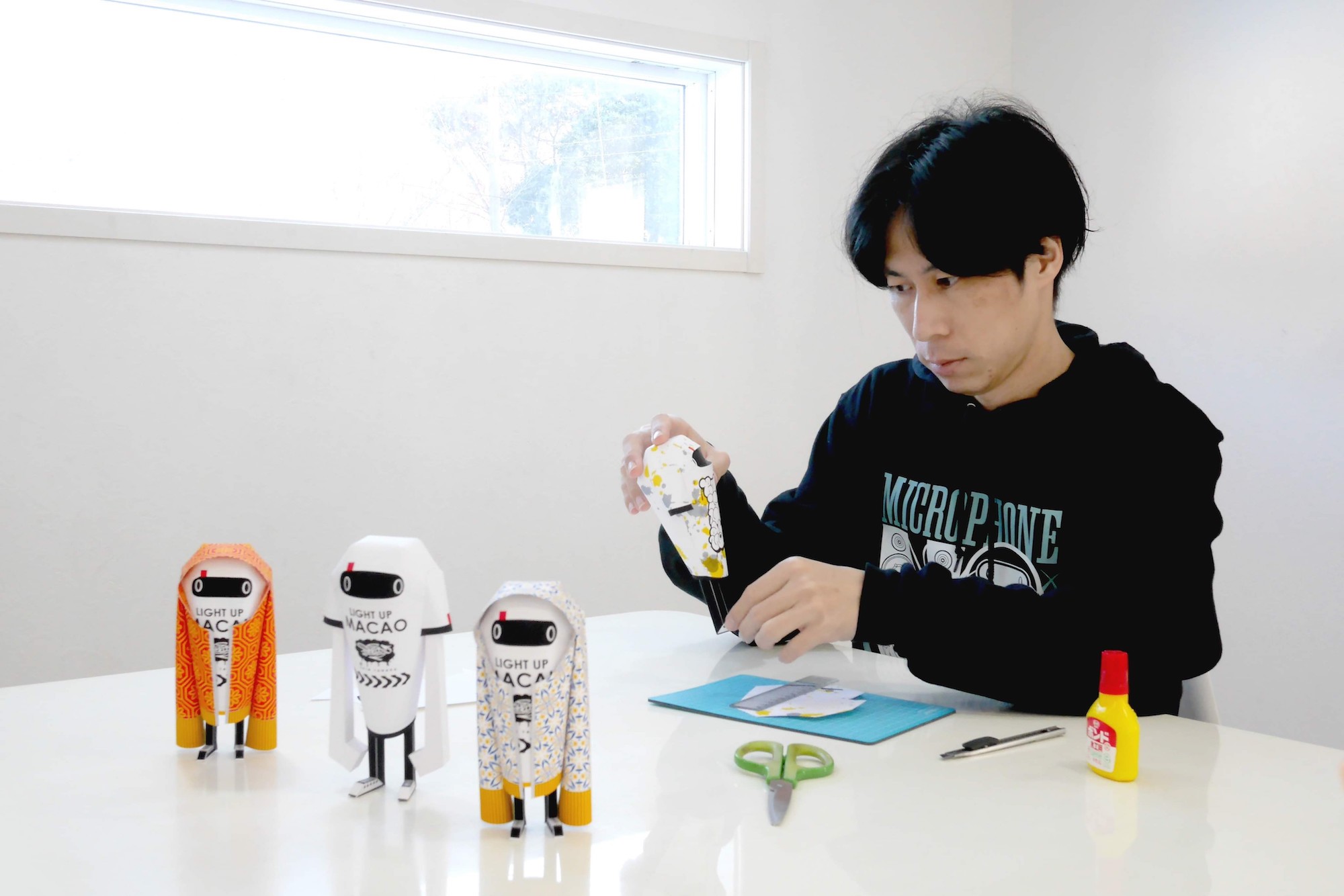
Hailing from Fukuoka, a port city on the Japanese island of Kyushu, Tanaka got his big break by crafting paper models of his favourite sneakers. The whimsical creations caught the attention of major fashion brands like Nike, Adidas and LOEWE, leading to many exciting collaborations.
But he says his artistic journey started much earlier. “I used to play with origami when I was little,” says Tanaka. “At that time, I just folded paper while looking at a book, but I found it interesting that flat paper could take on a three-dimensional shape, and I made so many pieces.”
Paper’s accessible nature also appealed to Tanaka’s democratic view of art. “It’s easy to draw on, colour and finish into a shape, so it can be arranged in many different ways, allowing each person to turn their own inspiration into art,” he adds.
That’s why, in addition to creating unique paper sculptures – like his fun depiction of Karl Lagerfeld – Tanaka also shares origami toy prototypes online for anyone to print, assemble and decorate. He also relishes the opportunity to participate in public exhibitions.
“Exhibitions in public places are aimed at everyone, so the artwork needs to have an impact and resonate with people’s sensibilities,” he says. “This is a very difficult challenge but a very rewarding one.”
An illuminating journey across Coloane
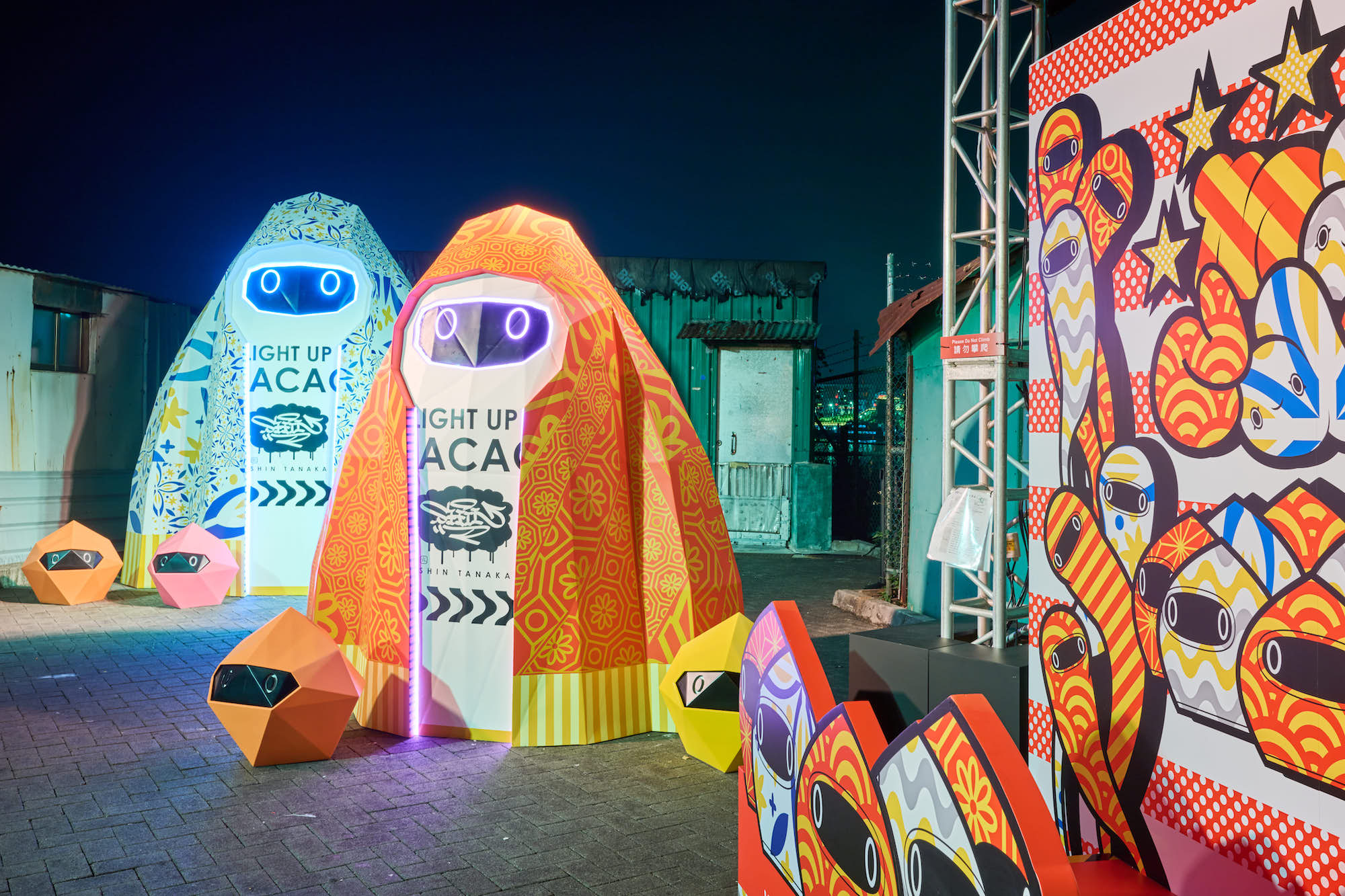
To ensure his Coloane Ambassadors resonate with people in Macao, Tanaka experimented with local patterns, colours and natural motifs inspired by the city’s history and culture.
“Macao has a very interesting mix of European and Chinese cultures, and the combination of the two elements had to have a perfect balance,” says Tanaka. “It was not a single trial. It was a gradual evolution, repeated several times with multiple combinations. This is similar to how living organisms evolved to the optimum shape for their environment.”
You can find the lively displays at five spots across Coloane: Rua dos Navegantes, Coloane Pier e Largo do Cais, the Coloane Library, Largo do Bazar and Pensão Coloane No.1 Forecourt.
Walking along Rua dos Navegantes (Navegantes means ‘seafarers’ in Portuguese), two towering “T-BOY Adventurers” and their Little Companions illuminate the streets with neon lights and graphic patterns. The sculptures aim to communicate a “merging of Chinese and Portuguese culture in Macao” and the “fusion of classical and street art,” Tanaka explains.
Over at Coloane Pier, a trio of 2.4-metre-tall “T-BOY Seafarer Ambassadors” appear to emerge from a rock wall, and a clutch of glittering Little Companions dangle from the ceiling like disco balls. “The motif for the port was ‘new things are born,’” explains Tanaka. “Culture overflowing from the ground is similar to the sprouting of plants, and the birth of new culture is celebrated like a party.”
The characters draw inspiration from Coloane’s history. Once a lively hub of fishermen, sailors and traders, the figures embody this vibrant past, enhancing their connection to local heritage.
Modernising an ancient art
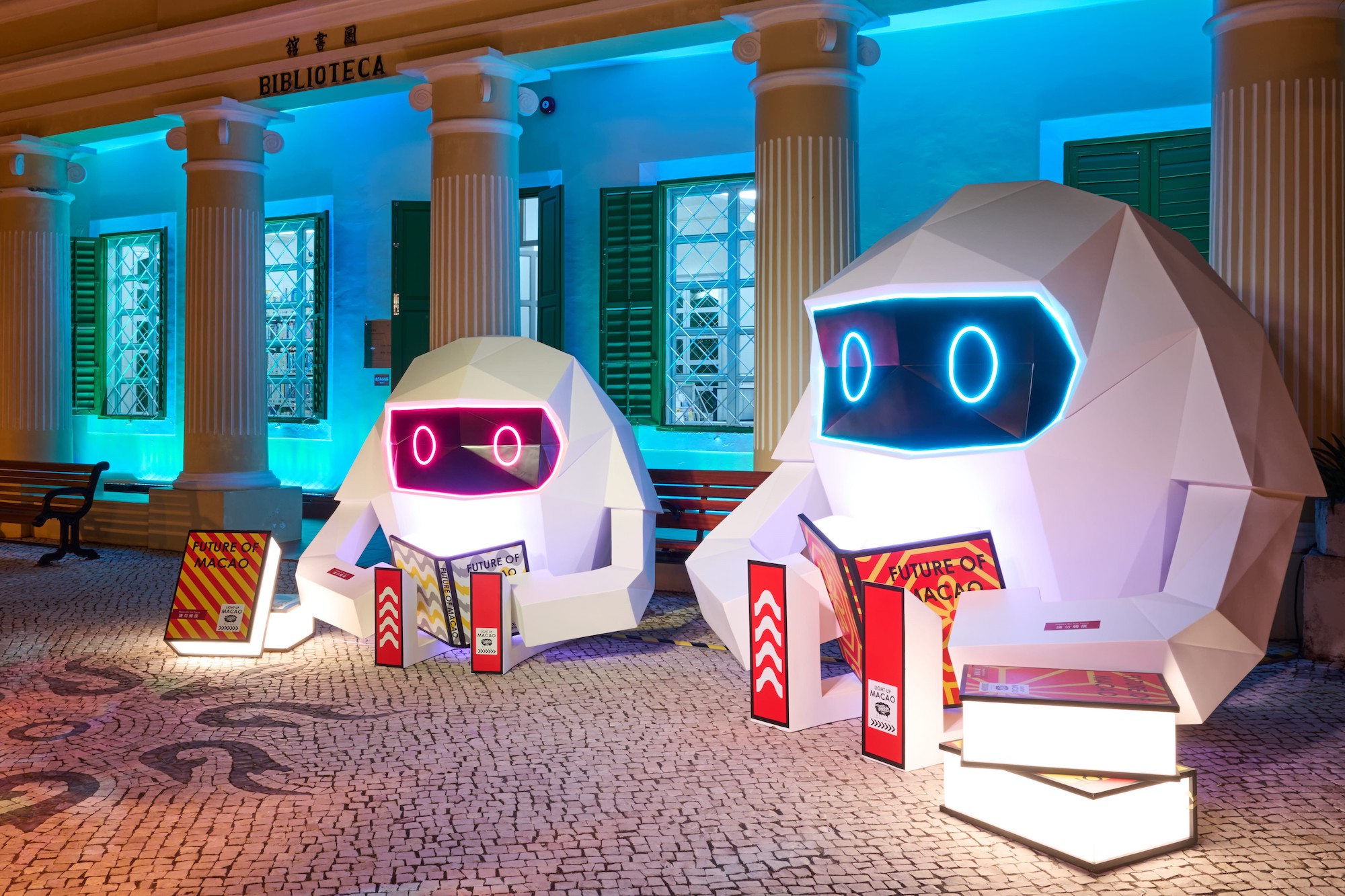
To realise his sculptures, Tanaka has collaborated with Don’t Believe In Style, a Hong Kong-based digital art group that helped design the displays’ decorative lighting. “Paper art has a specific colour and many surfaces, so light can totally change the experience,” says Tanaka. “It can make the paper art glow, shine, or cast shadows in various ways. We hope the lighting will add even more value than the original and create a wonderful memory of Macao.”
Another way to create special memories, he says, is by harnessing augmented reality (AR). To that end, Sands China and the team developed an AR experience at each exhibit so people can use their phones to interact with the characters and take photos.
“Paper, as an object, has a beauty that is unique to paper,” says Tanaka. “The delicacy of curves and fold lines can only be conveyed by the real thing. However, recent technological developments have made it possible to create digital versions that can be even more expressive.”
In Tanaka’s view, melding old and new is also a perfect fit for Macao’s culture, which he hopes to share through his work on Sands China’s Light Up Macao exhibitions.
“I hope that my participation will help many people to rediscover the wonders and charms of Macao,” says Tanaka. “I believe that the city’s culture will continue to grow and evolve. This event is one milestone in that evolutionary process, and we hope it will facilitate the next evolution through public art exhibitions like these.”
